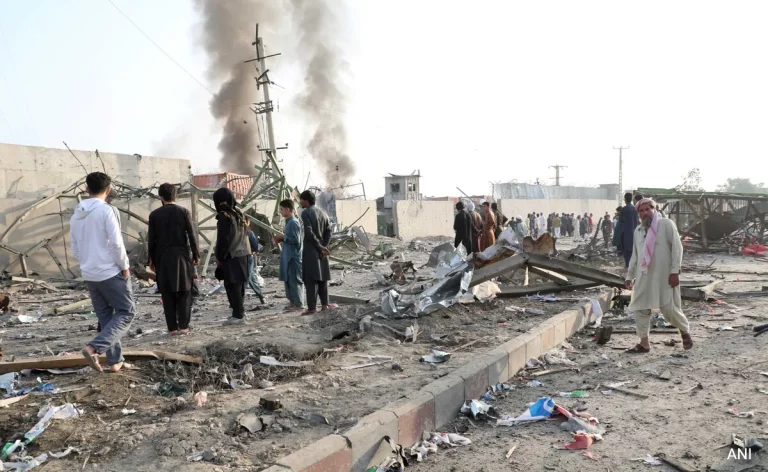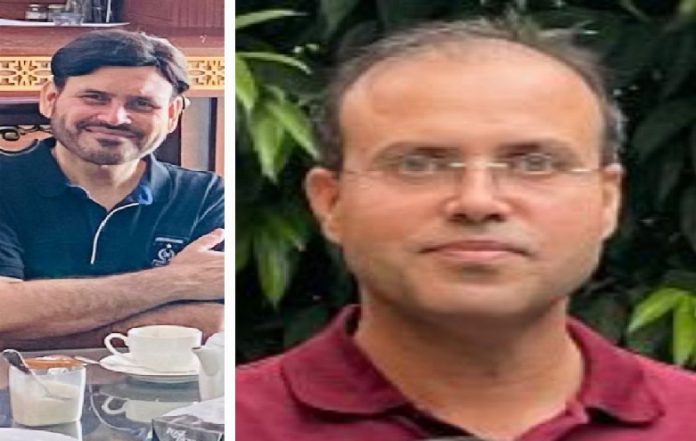While Baloch Liberation Army [BLA] attacks against security forces, non-locals and Chinese nationals working on the China-Pakistan Economic Corridor [CPEC] projects are commonplace, Operation Herof carried out by this armed group on August 26 stands out for two reasons.
One, its scale has been unprecedented, and two, Pak Army’s phenomenally articulate media wing Inter-Services Public Relations [ISPR] has been unusually guarded while disclosing details about the multiple attacks and military casualties.
Operation Herof: Conflicting Reports
What one gathers from the ISPR statements is that while the Pak Army neutralised 21 BLA cadres and wounded several others, 10 security force personnel and four law enforcement agency [LEA] members lost their lives during clearance operations.
However, in a surprising departure from its well-established procedures and protocols, ISPR hasn’t disclosed the names of those army personnel who laid down their lives in the line of duty. This glaring omission raises suspicion that there’s definitely something that the Pak Army is trying to hide.
On its part, the BLA initially posted the names along with photographs of 10 of its fighters who were killed during Operation Herof on social media. The dead include nine members of Majeed Brigade [BLA’s suicide squad] and one belonging to BLA’s Fateh squad.
The deceased Majeed Brigade members include one 22-year-old female law student from Gwadar who detonated an explosive-laden vehicle at the Pak Army camp gate in Bela. The person who led this attack was a ‘second generation’ BLA fighter who followed the footsteps of his father and younger brother [both BLA cadres] who were killed in encounters with the Pak Army.
The attackers included a former Pak Army who after deserting service had joined BLA, the relative of a BLA fighter who had been killed during the 2018 attack on the Chinese Consulate in Karachi and a cadre who was only 20 years old. While attacks on military targets during Operation Herof were carried out by the Majeed Brigade, the Fateh and Special Tactical Operations Squads of BLA set up roadblocks along major highways in Balochistan to prevent reinforcements.
BLA has stated that its fighters had not only completely overrun the Bela army camp but also prevented thwarted efforts of reinforcements to recapture it for 10 hours. BLA has also claimed that 130 Pak Army soldiers were killed during Operation Herof and it had lost only 10 fighters. On the other hand, ISPR has announced that while the Pak Army has sent 21 BLA fighters to “hell,” it has lost only 10 security forces and 4 LEA personnel. Furthermore, ISPR has neither confirmed nor denied that the army camp in Bela had been attacked.
While Pak Army fatalities claimed by BLA may well have been greatly exaggerated, could this armed group have also tried to play down the number of its own casualties as they are less than half of what ISPR has stated? So, isn’t it obvious that someone is definitely being economical with the truth?
ISPR’s claim of 21 BLA fatalities would undoubtedly be backed by as many body bags and the unversed would contend that with this physical evidence, there should be no reason to doubt the correctness of the Pak Army’s assertion. However, even though it may be in physical possession of the dead bodies of 21 Balochis, Pak Army watchers would still doubt ISPR’s declaration and there’s a compelling reason for this.
Extrajudicial Killings
The Pak Army has a notorious reputation for staging extrajudicial killings and passing off those murdered as terrorists just to cover up its military reverses and events that followed the 2022 abduction and subsequent killing of serving Pak Army officer Lt Col Laeeq Mirza Baig by BLA fighters in Balochistan’s Ziarat district gives an insight into the perverse mindset of the Pak Army.
In the aftermath of this abduction and killing, ISPR announced that nine terrorists involved in it had been killed and Pak Army’s swift action in bringing the perpetrators to book was widely applauded. This euphoria however came to an abrupt end when the Human Rights Council of Balochistan [HRCB] took to social media stating that “5 bodies out of 9 have been identified & all 5 persons are registered enforced disappeared persons who had remained in the custody of forces for months & years.” [Emphasis added].
HRCB supported its revelation by painstakingly comparing file photographs of persons subjected to enforced disappearances by the Pak Army with those of the alleged ‘terrorists’ supposedly involved in the kidnapping and killing of a Pak Army officer. The five murdered Baloch men were identified as the following:
· Victim 1– Shams Satakzai, who was forcibly disappeared by the Pak Army in 2017.
· Victim 2– Salim Karim, a student and resident of Panjgur, was abducted by the Pak Army in April 2022 when he was on his way to Quetta.
· Victim 3– Dr Mukhtar, a physiotherapist by profession who forcibly disappeared on June 11, 2022 from Quetta.
· Victim 4– Engineer Zaheer Bangulzai who was forcibly disappeared by security forces/ intelligence agencies from his office at Airport Road Quetta on October 7, 2021.
· Victim 5-Shehzad Khuda Bakhsh, who was abducted by security forces on June 4, 2022.
So, could it be that in order to conceal the ignominy of having been overwhelmed by BLA, the Pak Army inflated BLA fatalities from 10 to 21? Similarly, could ISPR also have scaled down the Pak Army’s fatalities in this operation? ISPR’s failure to disclose the identity of the killed soldiers does endorse this suspicion because officially acknowledging the supreme sacrifice of only 10 soldiers while relegating others killed in action to anonymity could enrage their kith and kin creating an extremely embarrassing situation.
In 2022, after ISPR’s announcement that the Pak Army had eliminated nine BLA cadres in the Ziarat incident, BLA issued a detailed and convincing statement that read, “Baloch Liberation Army takes utmost pride in its struggle and the martyrdom of our comrades during this struggle. BLA announces all martyrdoms of its members with great glory and honour. If any of our freedom fighters had lost their lives in this successful operation, we would have taken pride in making it public and paying rich tributes to them.” [Emphasis added].
Several reasons like lack of development, denial of rights, exploitation of the region’s natural resources and the ubiquitous ‘India hand’ are cited as causative factors that fuel separatist sentiments amongst the Baloch people. However, the Pak Army’s abhorrent practice of orchestrating widespread enforced disappearances and extrajudicial killings is one of the main factors that is not only sustaining but also propelling the armed struggle in Balochistan.
Media’s Perspective
After Operation Herof, this issue has figured prominently in the media. In its August 27 editorial, Dawn mentions that “The reasons behind this wave of disaffection that have led young middle-class men and women to protest are well-known; they pertain to human rights violations, poor socioeconomic conditions, and the denial of political rights. These factors provide a fertile recruiting ground for terrorist groups on the lookout for angry, frustrated elements to join their ranks.” [Emphasis added].
The News International editorial on the BLA attacks cautions that “… this [military] crackdown must be conducted with precision, ensuring that innocent civilians are not caught in the crossfire, as any collateral damage could exacerbate the very grievances that fuel such insurgencies,” and that “The state must ensure that counterterrorism operations do not further alienate the local population.” [Emphasis added]. Holding that “Accountability must also be a cornerstone of any strategy moving forward,” it clarifies that“This means not only bringing the perpetrators of violence to justice but also ensuring accountability for any human rights violations committed in the province.” [Emphasis added].
Writing in The Friday Times, Ejaz Haider has rightly opined that “Balochistan is not just about counterterrorism or counterterrorism operations. It requires a holistic approach that can ultimately lead to a political resolution of the problem.” By stating “Security forces don’t like getting their personnel killed. The desire for revenge runs high after such attacks” he has made an explicit reference to Pak Army’s depraved and unprofessional mindset over-obsessed with vendetta. His incisive observation that “For the most part the Baloch are angry and a sense of belonging cannot be bludgeoned into anyone”[Emphasis added]leaves nothing to the imagination.
To back its claim of having inflicted 21 BLA fatal casualties on BLA during Operation Herof with physical evidence, the Pak Army has most certainly murdered 11 unfortunate Baloch youth who had nothing to do with this incident. This in turn goes to prove that the Pak Army is in no mood to eschew its self-debilitating policy of enforced disappearances and extrajudicial killings in Balochistan.
However, old habits die hard. So, while rationalists continue flagging the serious perils of Rawalpindi institutionalising these brutalities as they are only further nurturing the ongoing armed struggle in Balochistan, the Pak Army remains unperturbed. And why should it bother? After all, during a media interaction in 2019, while answering a question on enforced disappearances in Balochistan, didn’t the then ISPR chief Maj Gen Asif Ghafoor, honestly reveal the Pak Army’s viewpoint by saying “We don’t want anyone to be missing, but war is ruthless. Everything is fair in love and war”! [Emphasis added].










